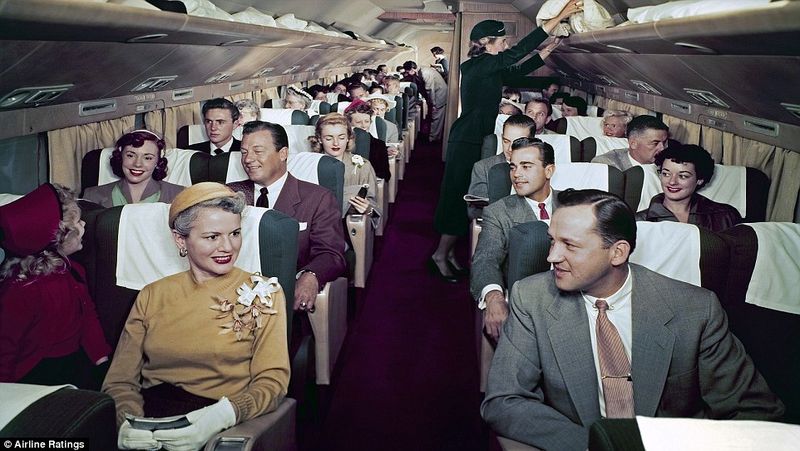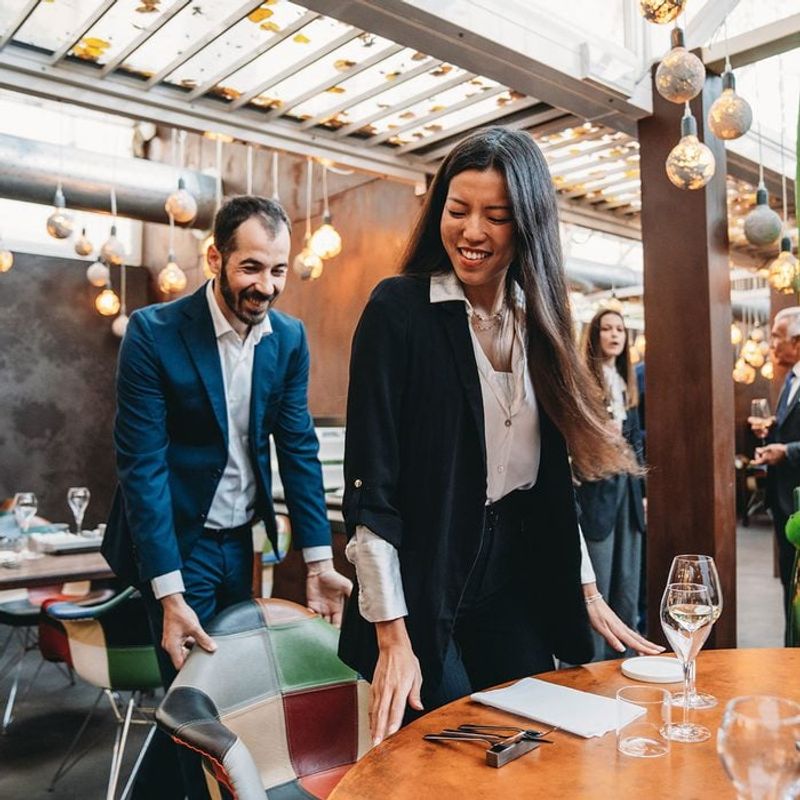In a rapidly changing world, many traditional etiquette rules are becoming relics of the past. What was once considered necessary social behavior is evolving, reflecting cultural shifts and technological advancements.
This article explores 20 etiquette practices that are gradually disappearing, offering insights into why these changes are happening and what they reveal about our society today.
1. Always sending handwritten thank-you notes
Once a staple of polite society, the handwritten thank-you note is waning. In an era of instant communication, emails and texts often replace this personal touch. While some cherish the sentiment behind a written note, the convenience of digital communication is undeniable.
The art of writing by hand is becoming less common, with schools focusing more on typing skills. Yet, for those who value tradition, a handwritten note remains a meaningful gesture.
Reflecting on this fading custom can bring a sense of nostalgia, reminding us of times when life seemed to move a bit slower. “Thank you” conveys the same message, but the medium can change the feeling.
2. Calling instead of texting
The sound of a phone ringing used to be a common household occurrence. Now, the quick ping of a text message has largely taken its place. Texting offers convenience and brevity, but something is lost in the absence of vocal tones and immediate feedback.
For some, phone calls invoke a sense of anxiety. They require full attention and don’t allow for the curated responses that texts provide.
Despite this shift, the personal touch of a phone call can deepen connections. It’s a reminder of a time when voices conveyed emotions that texts struggle to capture. The changing landscape of communication reflects broader societal trends towards efficiency.
3. Standing when someone enters the room
Standing to greet someone was a sign of respect and acknowledgment. This practice is becoming less common as informal settings and relaxed manners prevail.
Today, many find it sufficient to offer a smile or a wave. The formality of standing may feel out of place in casual environments.
Yet, in certain cultures and settings, this gesture holds significant meaning. It conveys respect and attentiveness, values that are timeless even as customs change. The decline of this practice mirrors a shift towards more egalitarian social interactions, where hierarchy is less emphasized.
4. Not discussing money in public
Once considered taboo, the open discussion of money is becoming more prevalent. As transparency grows in importance, conversations about finances, salaries, and investments are less guarded.
This shift reflects a desire for openness and sharing of information. Younger generations, in particular, are breaking down barriers around this topic, striving for financial literacy and equality.
However, the appropriateness of discussing money still depends on the context and audience. In some circles, it remains a sensitive subject. The evolving norms around this topic signal changing attitudes towards privacy and openness.
5. Dressing formally for air travel
Once upon a time, flying was a glamorous affair, and dressing up was the norm. The shift towards casual attire reflects a broader trend towards comfort and convenience in travel.
Air travel has become more accessible, and the emphasis on comfort has overtaken the desire to impress. Sweats and sneakers have replaced suits and dresses, marking a significant cultural change.
The transformation in travel attire highlights the democratization of air travel, as more people take to the skies than ever before. While some miss the elegance of yesteryear, today’s travelers value practicality over pomp.
6. Waiting your turn to speak
The art of conversation has evolved, and with it, the patience to wait one’s turn to speak. In a world that values immediacy and quick responses, interruptions have become commonplace.
Social media and digital communication encourage fast-paced exchanges, often at the expense of listening. Yet, the ability to wait and truly listen remains a valuable skill.
In settings where thoughtful dialogue is encouraged, waiting to speak can foster deeper understanding and respect. This fading etiquette practice challenges us to consider the quality of our interactions over the quantity of our words.
7. Not looking at your phone during meals
The dining table used to be a sanctuary for conversation and connection. Now, smartphones often compete for attention, even during meals. This shift highlights the pervasive influence of technology in our lives.
While the presence of phones can facilitate sharing and connecting with those not present, it can also detract from face-to-face interactions. The decline of this etiquette rule reflects changing priorities in social settings.
Choosing to focus on those physically present can enhance the dining experience, fostering genuine connections. As this practice fades, it invites reflection on the role of technology in our daily interactions.
8. Never showing up unannounced
Dropping by unannounced was once a common occurrence, a sign of spontaneity and friendliness. Today, it’s rare and often considered intrusive.
The decline of this practice aligns with busier lifestyles and the need for personal space. Many prefer scheduled visits, valuing the ability to prepare and manage their time.
However, the charm of an unexpected visit lies in its surprise and the warmth of an impromptu connection. As this tradition fades, it reflects a shift towards structured social interactions and the balancing act between openness and privacy.
9. Letting elders speak first
Respect for elders is a cultural cornerstone, yet allowing them to speak first is becoming less common. Younger generations often feel empowered to express their views early in conversations.
This shift reflects a move towards more egalitarian dialogue, where age does not dictate speaking order. The change can foster a more dynamic exchange of ideas but also risks diminishing the wisdom that comes with experience.
Balancing respect for elders with modern conversational norms is key in maintaining meaningful intergenerational connections. The fading of this etiquette rule highlights evolving attitudes towards authority and respect.
10. Keeping your opinions to yourself in company
Once considered polite, keeping opinions to oneself is less common today. The rise of social media and open forums encourages sharing personal views, often leading to vibrant discussions.
Expressing opinions is seen as a form of self-expression, yet it can sometimes lead to conflicts and misunderstandings. The challenge lies in balancing openness with respect for differing perspectives.
As this etiquette rule fades, it invites reflection on the importance of dialogue and understanding in diverse social settings. It highlights a cultural shift towards valuing individual voices and the freedom to express them.
11. RSVPing without needing a reminder
The act of replying to invitations promptly is waning in the era of busy schedules and digital distractions. Modern technology offers reminders, yet the etiquette of RSVP is often overlooked.
A timely response shows consideration for the host, allowing them to plan effectively. As life becomes more hectic, the task of RSVPing can feel like a burden.
However, honoring invitations remains a gesture of respect and gratitude. The fading of this etiquette rule underscores the challenges of balancing digital convenience with traditional courtesy.
12. Writing physical invitations for everything
In the age of digital communication, physical invitations are becoming rare. Emails and social media events have largely replaced the tactile experience of crafted invites.
While digital invites offer convenience and immediate delivery, they lack the personal touch that physical invitations provide. The artistry and effort involved in creating a tangible invite reflect sincerity and thoughtfulness.
The decline of this etiquette practice highlights a shift towards efficiency and accessibility. Yet, for special occasions, the charm of a physical invitation can evoke a sense of nostalgia and importance.
13. Avoiding political talk at the dinner table
Political topics were once avoided at the dinner table to maintain harmony. Today, these discussions are more frequent, reflecting a society engaged in civic discourse.
The shift towards open political conversation can foster understanding but also risks sparking conflict. Navigating these discussions requires sensitivity and respect for diverse viewpoints.
The fading of this etiquette rule highlights a cultural change towards openness and engagement with current events. It invites reflection on the power of dialogue in bridging divides and fostering informed citizenship.
14. Holding doors for everyone, not just women
Holding doors as a sign of courtesy has evolved from being a gender-specific gesture to a universal one. This change reflects a broader societal move towards equality and mutual respect.
Though the original intent was respectful, it often reinforced gender norms. The modern take is inclusive, embodying kindness and attentiveness to all.
The fading of this specific gender-related etiquette highlights a shift towards more egalitarian social behaviors. It underscores the importance of recognizing every individual’s worth and fostering an environment where everyone feels valued.
15. Using formal titles when addressing people
Addressing people with formal titles used to be a mark of respect and professionalism. Today, many workplaces and social settings favor a more relaxed approach.
The shift towards first-name basis interactions fosters a sense of camaraderie and equality. However, in certain contexts, formal titles still carry weight and signify respect.
The decline of this etiquette rule reflects changing norms in communication, where the emphasis is on building connections rather than maintaining hierarchical structures. It invites consideration of how language shapes relationships and perceptions of authority.
16. Offering guests your seat
Offering a seat to guests, especially those older or in need, was once a common courtesy. This practice is less observed today, as social norms evolve towards more casual interactions.
The gesture symbolizes respect and hospitality, values that remain relevant despite shifting customs. Providing comfort to others reflects a thoughtfulness that transcends trends.
As this etiquette rule fades, it challenges us to consider how we show care and attention in social settings. It highlights the enduring importance of empathy and kindness in human interactions.
17. Bringing a host gift—even for casual get-togethers
Bringing a host gift was once a standard practice, signifying gratitude and appreciation. In casual settings, this gesture is less common, reflecting a shift towards informality.
The tradition of offering a token of thanks endures in more formal occasions. It represents thoughtfulness and recognition of the host’s efforts.
As this etiquette rule fades, it encourages reflection on how we express gratitude and value in social interactions. The changing norms reveal a balance between fostering genuine connections and maintaining traditional courtesies.
18. Letting others serve themselves first
Waiting for others to serve themselves before taking food was once a dining standard. This practice is less observed today, particularly in casual dining scenarios.
The shift towards self-service reflects a cultural move towards efficiency and individual preferences. It allows for personal choice and pacing during meals.
However, the gesture of letting others go first embodies generosity and consideration. As this etiquette rule fades, it prompts reflection on how we prioritize communal values in our dining experiences.
19. Not interrupting, even when you disagree
The art of listening without interruption was once a pillar of respectful discourse. In today’s fast-paced world, interruptions are more common, driven by a desire for immediacy in conversation.
The challenge is to balance assertiveness with courtesy, allowing for meaningful exchanges even amid disagreement.
As this etiquette rule fades, it underscores the importance of patience and understanding in communication. It invites reflection on how we can foster dialogues that respect diverse perspectives while encouraging open expression of ideas.
20. Using proper table settings at home
Setting a table with formal cutlery and china was once a hallmark of mealtime etiquette. Today, casual dining often foregoes these traditions, embracing simplicity and convenience.
The shift towards informal table settings aligns with contemporary lifestyles that prioritize practicality. Yet, for some, the ritual of a well-set table enhances the dining experience, adding a touch of elegance.
As this etiquette rule fades, it reflects broader changes in how we approach dining and hospitality. It highlights the balance between honoring tradition and adapting to modern needs.





















